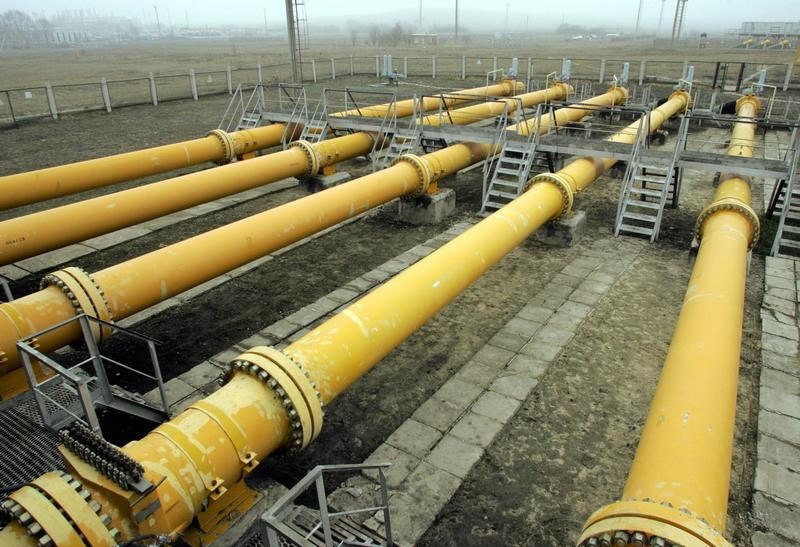By Barbara Lewis
BRUSSELS (Reuters) - U.S. and EU leaders will on Wednesday pledge to work together on sanctions and on strengthening the energy security of Europe and Ukraine, as they seek to present a united front to Russia, a draft document said.
U.S. Secretary of State John Kerry and Energy Secretary Ernest Moniz are in Brussels for talks after a year in which the United States has led the push for tougher sanctions, while some governments in Europe, afraid economic measures against Russia will hurt them as much as they hurt Moscow, have been more cautious.
The draft statement said the crisis between Russia and Ukraine that erupted with Moscow's annexation of Crimea in March can be cooled, as was shown by a tentative October agreement brokered by the EU on gas pricing to ward off a supply crisis over the peak winter months.
Moscow cut off Kiev's gas in June in a row over unpaid bills and the price Gazprom charges Ukraine.
So far the United States has been cautious about allowing gas exports as U.S. politicians worry they could drive up domestic prices, while business seeks to sell to the highest bidder, typically Asia rather than Europe.
But the draft on Wednesday welcomed the prospect of U.S. liquefied natural gas exports to Europe to diversify supplies and further talks on a transatlantic trade deal. It also backed EU and Ukrainian plans for energy reforms.
The European Union is seeking to complete its single energy market, building extra links to share available supplies. Ukraine wants improved infrastructure and connections with the EU network and to end years of energy waste as it moves away from subsidised prices.
The EU and the United States stood shoulder-to-shoulder in their support for Ukraine's new government and underlined the necessity of continuing reforms in Ukraine's energy sector, the statement said.

The U.S. and EU also said they backed a "robust and dynamic" accord at next year's United Nations climate conference in Paris and urged other governments to match the emissions reductions promises Washington and EU governments have made.
(Additional reporting by Adrian Croft; Editing by Philip Blenkinsop and David Holmes)